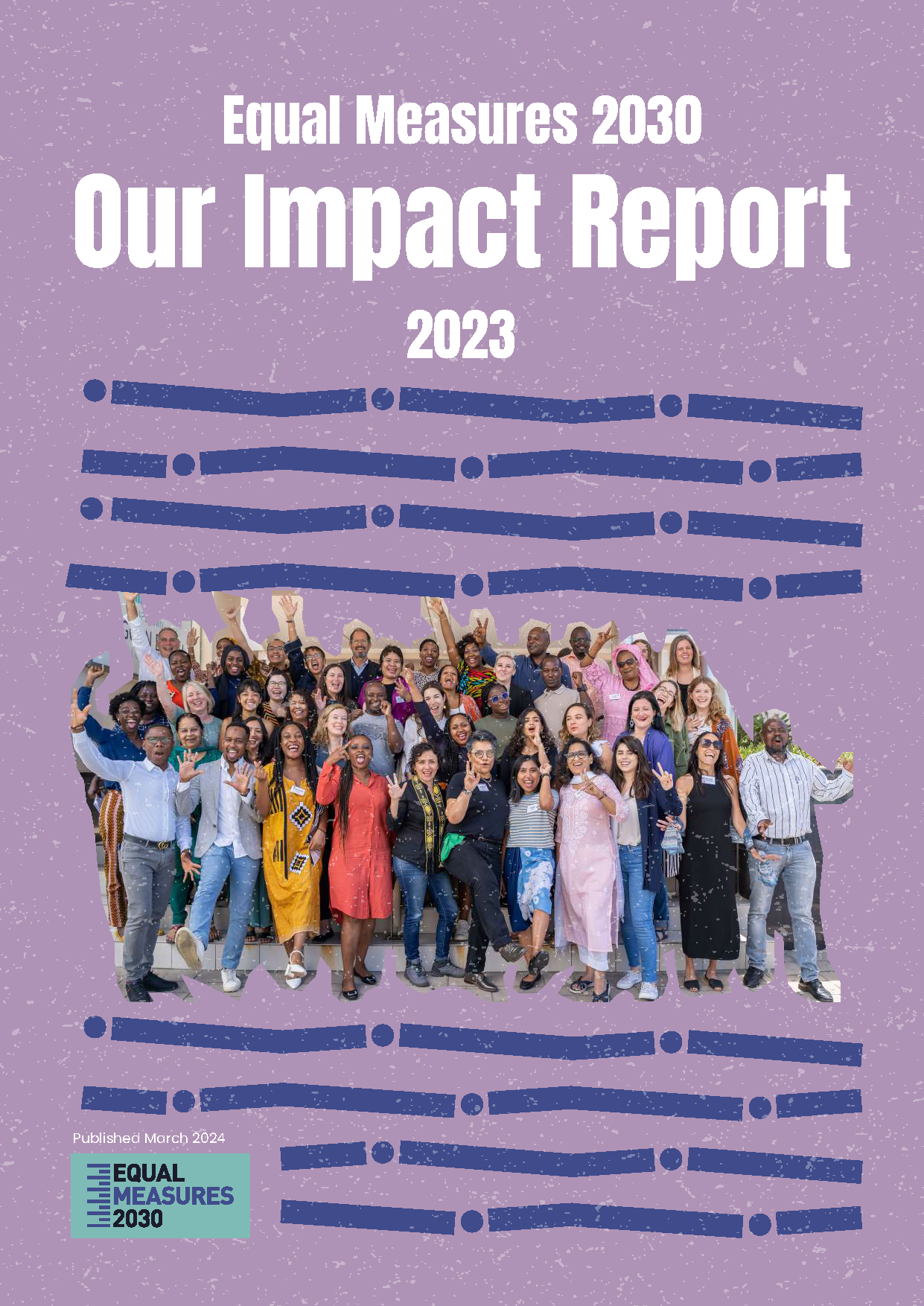Our Impact Report 2023

Pushing Forward against the headwinds
As every step forward for gender equality is being met with stronger headwinds, we at Equal Measures 2030 (EM2030) have been pulling together and pushing on with greater determination. And there is cause for hope: more than half of countries worldwide are moving in the right direction on gender equality.
By working together, we’ve designed a coalition model, a truly ‘global
to local’ collaboration in line with our feminist values, that will help us connect as data-driven advocates, spread the findings of our Index in our respective contexts, and unite our collective voice for gender equality in local, national, regional and global spaces. This model is already helping us to prepare for a high-impact and narrative-shifting launch of the next SDG Gender Index later in 2024.



